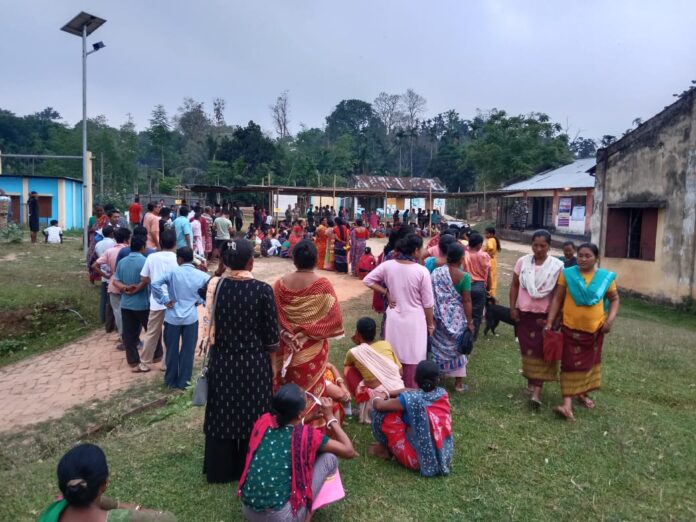The Northeastern states of Assam, Manipur, and Tripura brace themselves for the second phase of the Lok Sabha elections. With their rich cultural tapestry and diverse political landscapes, these states play a crucial role in shaping the democratic fabric of India. As voters across the region prepare to cast their ballots, the electoral dynamics and key issues at play offer a glimpse into the region’s political trajectory and aspirations.
Assam, the largest state in the Northeast, holds immense significance in the Lok Sabha elections, with its 14 parliamentary constituencies up for grabs in the second phase. Known for its complex socio-political dynamics and ethno-cultural diversity, Assam presents a mosaic of competing interests and identity-based movements. The state’s electoral landscape is shaped by issues such as immigration, identity politics, and development disparities, which resonate deeply with its diverse populace.
The implementation of the National Register of Citizens (NRC) and the Citizenship Amendment Act (CAA) has emerged as a focal point in Assam’s electoral discourse, fueling debates about citizenship rights, identity, and inclusion. The fallout from these contentious issues has galvanized support for political parties that promise to safeguard the interests of indigenous communities while addressing concerns about illegal migration and demographic change.
In Manipur, the second phase of the Lok Sabha elections will witness fierce competition for the two parliamentary seats at stake. The state, known for its scenic landscapes and vibrant cultural heritage, grapples with a range of socio-economic challenges, including unemployment, infrastructure deficits, and ethnic tensions. Political parties in Manipur have sought to capitalize on these issues, promising to deliver development and inclusive governance to address the aspirations of the people.
Manipur’s electoral landscape is also shaped by the ongoing peace process with various insurgent groups and the demand for greater autonomy and representation. The outcome of the Lok Sabha elections will have implications for the state’s peace and reconciliation efforts, as well as its integration into the broader framework of India’s federal structure.
In Tripura, the second phase of the Lok Sabha elections will see voters deciding the fate of the two parliamentary constituencies. The state, nestled in the northeastern corner of India, has witnessed a political transformation in recent years, with the Bharatiya Janata Party (BJP) emerging as a dominant force in state politics. The party’s electoral success in Tripura has been attributed to its focus on development initiatives, welfare schemes, and strategic alliances with regional parties.
However, the upcoming Lok Sabha elections present a new set of challenges for the BJP and its allies in Tripura, as they seek to consolidate their gains and fend off challenges from rival political formations. Issues such as unemployment, agricultural distress, and the preservation of tribal rights are likely to feature prominently in the electoral discourse, reflecting the diverse socio-economic concerns of the state’s population.
Across Assam, Manipur, and Tripura, the second phase of the Lok Sabha elections offers voters an opportunity to exercise their democratic rights and shape the future trajectory of their respective states. From the tea gardens of Assam to the hills of Manipur and the plains of Tripura, voters will cast their ballots with a sense of responsibility and agency, mindful of the profound impact their choices will have on the region’s political landscape and governance priorities.
As political parties vie for electoral supremacy, the spirit of democracy thrives in the Northeast, where the voices of the people resonate loud and clear in the corridors of power. The outcome of the Lok Sabha elections will not only determine the composition of India’s parliament but also reflect the aspirations and aspirations of millions of citizens across the region. With each vote cast, the Northeast reaffirms its commitment to democracy, diversity, and inclusive development, paving the way for a brighter and more prosperous future.



